knighthood
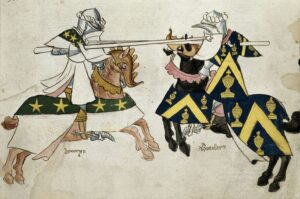
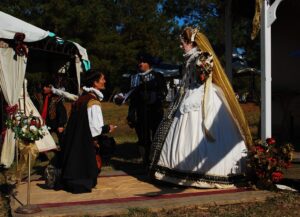 In centuries past, men could only be knighted for some kind of military bravery or prowess, but since 1917, by proclamation of King George V the reigning British monarch at the time, Britain has been awarding memberships into The Most Excellent Order of the British Empire, better known as British Order of Knighthood, to reward both civilian and military wartime service, to men and women, which makes sense since women are in the military now, and there are often civilian participants in some operations of war.
In centuries past, men could only be knighted for some kind of military bravery or prowess, but since 1917, by proclamation of King George V the reigning British monarch at the time, Britain has been awarding memberships into The Most Excellent Order of the British Empire, better known as British Order of Knighthood, to reward both civilian and military wartime service, to men and women, which makes sense since women are in the military now, and there are often civilian participants in some operations of war.
If that was the only change, it might have been ok, but in 1918, a separate military division of the order was created, that allowed persons of renown (basically celebrities) to be brought into the order as well. The five classes of both civil and military divisions, listed in descending order and conferred on men and women equally, are Knight and Dame Grand Cross (GBE), Knight and Dame Commander (KBE and DBE, respectively), Commander (CBE), Officer (OBE), and Member (MBE). Conferment of the two highest classes entails admission into knighthood, if the candidate is not already a knight or dame, and the right to the title of “Sir” or “Dame” as appropriate. (Knights and Dames Grand Cross, together with Knights of the Garter and of the Thistle, may be granted the use of supporters with their arms.) Appointments are usually made on the recommendation of the British Secretary of State for Defense and the Secretary of State for Foreign and Commonwealth Affairs. It seems strange to me that it would happen like that.
I understand that they were trying to include more people, but in doing so, it seems to me that the honor is cheapened, somehow. These days, being knighted holds a much different meaning than it used to. Nations with a monarch as their head of state would, once upon a time, issue knighthoods to their loyal subjects and foreign citizens who have done great deeds for their country. Today, you can still earn a knighthood through military prowess, but you can also earn one if your artistic, scientific, or civil service “shines greatly” upon the crown. 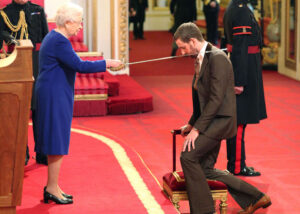
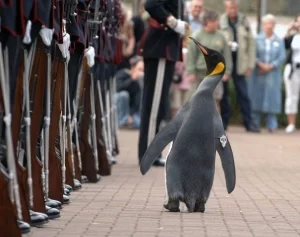 Really?? Of course, you could also be a genocidal Marxist dictator who overthrows the government and you’ll eventually be knighted…or you could just be a penguin…I mean it!!! To me, being knighted for anything other than extraordinary service to the country makes the award of little to no value. I don’t dispute these actors and others right to recognition, it’s just that knighthood doesn’t seem the place for it.
Really?? Of course, you could also be a genocidal Marxist dictator who overthrows the government and you’ll eventually be knighted…or you could just be a penguin…I mean it!!! To me, being knighted for anything other than extraordinary service to the country makes the award of little to no value. I don’t dispute these actors and others right to recognition, it’s just that knighthood doesn’t seem the place for it.
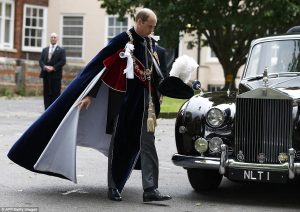 On this day, April 23, 1348, the Most Noble Order of the Garter…the first knighthood of England was founded. This knighthood is only inferior to the Victoria Cross and the George Cross. The honor is always bestowed on its winners on April 23, which is Saint George’s day. Saint George is England’s patron saint. Appointments are awarded at the Sovereign’s pleasure as a personal gift on recipients from the United Kingdom and other Commonwealth realms. Membership of the Order is limited to the Sovereign, the Prince of Wales, and no more than 24 members, or Companions. The order also includes supernumerary knights and ladies.
On this day, April 23, 1348, the Most Noble Order of the Garter…the first knighthood of England was founded. This knighthood is only inferior to the Victoria Cross and the George Cross. The honor is always bestowed on its winners on April 23, which is Saint George’s day. Saint George is England’s patron saint. Appointments are awarded at the Sovereign’s pleasure as a personal gift on recipients from the United Kingdom and other Commonwealth realms. Membership of the Order is limited to the Sovereign, the Prince of Wales, and no more than 24 members, or Companions. The order also includes supernumerary knights and ladies.
That made me wonder just exactly what it took to become a knight. It seems that in Medieval times, becoming a knight was something young men trained for from early childhood. 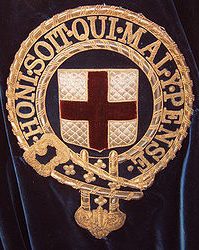 Knighthood training was a long and often arduous process. It began with a basic education and good manners and rules of etiquette were taught at home. At the age of seven, young boys were sent away to the castles and homes of wealthy lords or relatives to embark on their knighthood training. From the age of seven to fourteen these young boys were given the role of a Medieval Page. From fourteen to twenty-one these ‘apprentice knights’ were referred to as Squires. The different types and styles of Knighthood training depended on the age and strength of the apprentice knights. Knighthood training was focussed on weapon practice which included enhancing skills in horsemanship, the two-handed sword, battle axe, mace, dagger and lance. Still, it was not all the training that ultimately won the squire to coveted title of knight. A squire had to prove his bravery and skill at battle. Only then, would he become a knight…at the age of twenty-one. He gained the title of knight at a “dubbing” ceremony. All this was a really big deal.
Knighthood training was a long and often arduous process. It began with a basic education and good manners and rules of etiquette were taught at home. At the age of seven, young boys were sent away to the castles and homes of wealthy lords or relatives to embark on their knighthood training. From the age of seven to fourteen these young boys were given the role of a Medieval Page. From fourteen to twenty-one these ‘apprentice knights’ were referred to as Squires. The different types and styles of Knighthood training depended on the age and strength of the apprentice knights. Knighthood training was focussed on weapon practice which included enhancing skills in horsemanship, the two-handed sword, battle axe, mace, dagger and lance. Still, it was not all the training that ultimately won the squire to coveted title of knight. A squire had to prove his bravery and skill at battle. Only then, would he become a knight…at the age of twenty-one. He gained the title of knight at a “dubbing” ceremony. All this was a really big deal.
Knighthood, like all tradition has undergone changes over the centuries, and I’m sure most of us know that people like Paul McCartney, Elton John, and Mick Jagger have all been knighted. After researching the  requirements of old, I wondered how these men became knights. So, I looked into it, and I came back disappointed. It seems that these men were knighted for their work in music and charity. While these are noteworthy accomplishments, it seems to me that they could find a different type of award for these feats. How can work in music and charity possibly be as award worthy as bravery and skill in battle. That would be like giving the purple heart to someone who wrote a book about someone being injured in a war. I think David Bowie must have agreed with me, because in 2003, he turned down the knighthood offered to him. He was labeled a rebel, and it was thought that he was unimpressed with nobility, but maybe he just didn’t see how he could have earned it. I would agree.
requirements of old, I wondered how these men became knights. So, I looked into it, and I came back disappointed. It seems that these men were knighted for their work in music and charity. While these are noteworthy accomplishments, it seems to me that they could find a different type of award for these feats. How can work in music and charity possibly be as award worthy as bravery and skill in battle. That would be like giving the purple heart to someone who wrote a book about someone being injured in a war. I think David Bowie must have agreed with me, because in 2003, he turned down the knighthood offered to him. He was labeled a rebel, and it was thought that he was unimpressed with nobility, but maybe he just didn’t see how he could have earned it. I would agree.

